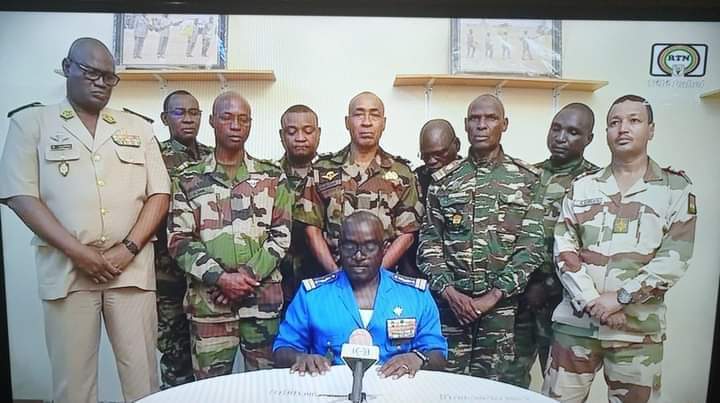In this exclusive interview Session with Mohammed Bello-Koko, MD and CEO of the Nigeria Ports Authority, we dived into the mind of a visionary leader and explored his bold vision for the Nigerian Ports Authority, which is propelling the nation towards economic greatness.
The discussion uncovers the captivating plans of the CEO on how to steer the nation’s ports towards a sustainable and environmentally responsible future.
The excerpt;
Can you tell us about your background and experience in the maritime industry so far?
Before my appointment as Managing Director and CEO of the Nigerian Ports Authority (NPA) in February 2022, I had a six-year track record of performance in the maritime industry, first as Executive Director Finance & Administration and subsequently as acting Managing Director.
In addition to the above, I possess over 20 years of broad-based experience across several functions, including oil and gas, large corporation portfolio management, and public sector financing, while working in the banking industry.
My exceptional contribution to Zenith Bank’s globally referenced profitability and balance sheet in the period 2005–2015 earned me numerous awards and a spot in the bank’s Executive Management Team as Deputy General Manager and Zonal Head.
What are the current challenges facing the Nigerian Ports Authority, and how are you addressing them?
A major issue affecting expedient cargo clearance processes are the customs processes and the fragmentation of custom units into multiple points within the port, as well as the operation of custom formations outside the port gates.
For the ports to be efficient and competitive, there needs to be a robust and efficient off-dock system that would operate as an extension of the port in a manner that facilitates the evacuation of cargo through rail or inland waterways.
There is an urgent need for the operationalization of the National Single Window (NSW) to be activated by the Nigeria Customs Service (NCS).
Functional Overlaps due to many Agencies operating within the port lead to avoidable delays and an attendant increase in port costs.
To improve the ease of Doing Business, harmony is required between NPA’s drive for trade facilitation and Nigeria Customs focus on revenue generation.
There is also the challenge of getting Nigeria Customs Service (NCS) to adopt the World Customs Organization’s (WCO) guidelines on transshipment, which focus on easing transshipment procedures and position Nigeria to win back transit cargo and service the maritime needs of our landlocked neighbours.
The cumbersome and long process of the Procurement Act limits the authority’s ability to respond in a timely manner to emergencies. There is a cost implication to delays of any nature in the maritime sector.
There is also the need for the government to approve an upward review of the authority’s tariff, which has been STATIC since 1992/93. This is expedient to bolster the authority’s finances to enable it to cope with its widening responsibilities.
We are also faced with the challenge of being unable to speedily undertake maintenance of Port access roads due to the need to seek approval from the Federal Ministry of Works and Housing (FMW&H).
The low threshold for Procurement approvals by the Executive Management/Parastatal Tenders Board (PTB) is also a challenge that impedes a quick response to the emergent needs of Port Operators.
Conflicting legislation with sister agencies is affecting the discharge of their respective responsibilities.
Ageing Port infrastructure, some of which is over 100 years old, has developed in a way that is not sustainable.
Full-scale rehabilitation is required, and discussions are ongoing with multilateral forwarding agencies to address the challenges.
What steps have you taken to improve the infrastructure and technology at the ports?
There has been an unprecedented investment in infrastructure and equipment renewal within the budget and through partnerships and the deployment of public-private partnerships to fund areas that are beyond budgetary provisions. The following steps have been undertaken:
a.) INFRASTRUCTURE AND EQUIPMENT RENEWAL: We have equipped, rehabilitated, and Operationalized state-of-the-art Control Towers for the Lagos and Tin Can Island Port Complexes. – Procurement and deployment of Security Patrol Boats (SPBs) across all Port locations has led to enhanced channel security and addressed the incessant attacks of vessels along the channels and at ports waterfronts, which has resulted in unprecedented cargo traffic in the Eastern Ports, especially the Onne Port Complex. Acquisition of more harbour craft (Tugboats, Pilot Cutters) to eliminate delays associated with berthing and sailing of vessels and improve efficiency at the ports Acquisition of first-of-its-kind marine crafts in Africa, such as the recently commissioned two units of Azimuth Stern Drive (ASD) 8213 model 80-tonne Bollard Pull Tugboats to enable the berthing of very large vessels of 300 metres LOA and above.
b.) IMPROVED NAVIGATIONAL AIDS Provision and installation of navigational Aids and Buoys for Warri and Calabar Pilotage Districts for proper channel marking and route mapping
c.) DIGITALIZATION AND IMPLEMENTATION OF THE PORT COMMUNITY SYSTEM: We have Completed the 1st phase of consulting for the Port Community System (PCS) under the technical guidance of the International Maritime Organisation (IMO). The PCS will lay the groundwork for the National Single Window (NSW), which constitutes the global benchmark of port efficiency. – Automation of port ship reception and billing payment with the Revenue Invoicing and Management System (RIMS) – Deployment of electronic manifest and ship entry notice documentation processes – Deployment of an electronic Traffic Management system – Operation of Oracle Financials and Oracle HR – Ongoing procurement of software for harbour automation
d.) DOMAIN AWARENESS CAPABILITY: We have awarded the consultancy contact for the deployment of Vessel Traffic Service (VTS), a maritime safety measure that equips us with Domain Awareness Capability to enable us to guide and provide safety information to vessels within our channels and port approaches, in line with the Safety of Lives at Sea (SOLAS) convention. Also, we have concluded the authority-wide equipping and strengthening of Radio Signal Stations.
There seem to be disparities between the Ports Act and the Fiscal Responsibility Act and the Finance Act in terms of the usage of funds generated by the NPA; how do you balance things up?
The NPA is a creation of law, and as a responsible Management team, we are duty-bound to operate within the confines of extant laws and constitutional derivatives such as the Finance Act, etc. Although we would prefer a situation where we could be allowed to deploy a portion of our revenues towards infrastructure and equipment acquisition, we cannot operate outside of what the government and the law permit.
How do you ensure that the ports operate efficiently and effectively while maintaining high levels of safety and security?
Safety and Security actually constitute part of our core values, so keeping up with these core values deepens our efficiency and effectiveness. The Onne and Calabar ports are ISO certified, while others are in advanced stages of certification. The authority has continued to invest in security architecture as demanded in the ISPS Code.
We have also committed to collaborating with security agencies by providing funding and security boats to check for attacks on vessels and other crimes at sea.
How do you ensure that the Nigerian Ports Authority remains competitive in a global market?
In the international business that maritime is, competitiveness is assured by efficiency. Since we understand that automation is the linchpin of port efficiency, we have more than ever before infused technology into our processes, ranging from collections to traffic management to crucial operational aspects.
But in a more comprehensive and sustainable manner, we are tenaciously working under the technical guidance of the International Maritime Organisation (IMO) to deploy the Port Community System (PCS), which is an Information Technology strategy that consolidates all intra- and inter-agency exchanges and information sharing under a single window, thereby ensuring speed and seamlessness.
What is your vision for the future of the Nigerian Ports Authority, and how do you plan to achieve it?
My vision is to see a Nigerian Ports Authority that meets the exigencies of the highly competitive global maritime sector, and we are taking studied and deliberate action steps towards this vision. As you are aware, Nigeria’s first Deep Seaport and first fully automated Port at take-off (Lekki Deep Seaport) commenced operations in record time because we fast tracked the approval process precedent to its operationalization, which ordinarily should take a much longer period. We have also secured approval for Badagry Deep Seaport, Ondo Deep Seaport, Snake Island, and Koko Ports, all in record time.
We are also deploying PPP initiatives to fix ageing Port Infrastructure across our existing locations, and we are regional leaders in the acquisition of state-of-the-art marine crafts such as the recently deployed ASD 8213 Bullard Pull Tugs, amongst others.
The Port master plan is also in advanced stages of conclusion. We also funded the publication of the Nigerian Port Process Manual (NPPM), which for the first time codified all processes and inter-agency exchanges required to do business in Nigerian Ports to support ease of doing business.
Can you speak to the role of the Nigerian Ports Authority in promoting trade and economic development in Nigeria?
Recognising our role as Nigeria’s foremost trade facilitation platform and gateway to the national economy, we are always ahead of the herd in ensuring bottlenecks impeding trade are eliminated through simplified initiatives, inter-agency collaborations, and indeed advocacy. Our strong advocacy and collaboration, for instance, led to the unprecedented speed that attended the designation of Lekki Deep Seaport as an Approved Customs Wharf and its publication in the public gazette. We are currently holding hands with the Nigerian Customs Service (NCS) and leading the advocacy at the highest policy-making level for Nigeria’s adoption of the World Customs Organization’s (WCO) guidelines on transshipment to pave the way for Nigeria’s attainment of Port hub status. Our approval of ten (10) Export Processing Terminals in partnership with the Nigerian Export Promotion Council (NEPC), which is targeted at ensuring the competitiveness of Nigerian exports, will give a fillip to the diversification of the national economy from solely crude oil dependent to non-oil dependent, etc.
How do you work with stakeholders, including government agencies, shipping companies, and port users, to achieve your goals?
The Authority continues to have a quarterly stakeholder meeting as a way to Intensify partnerships and collaborations with all stakeholders.
What measures do you have in place to ensure transparency and accountability in the management of the Nigerian Ports Authority?
Our revenue and invoice management, tariff, and billing processes are simplified and fully automated. We are also up to date with the audit of our financial books and accounts. The Authority is the first to open its budget to the public through the budgIT platform.
How do you balance the need for growth and development with environmental concerns and sustainability?
We are signatories to and implement all IMO and IAPH conventions and instruments on port sustainability. We recently got the Onne and Calabar Port Complexes ISO certified, while all the other ports are in advanced stages of certification.
What would you say is your biggest achievement as MD of the Nigeria Ports Authority?
Unprecedented revenue generation and remittance to the Consolidated Revenue Fund (CRF) of the federal government of Nigeria, the commencement of operations of the first Deep Sea Port in Nigeria, the Lekki deep sea port, Trade Facilitation achieved through the automation of the billing and revenue collection process, improved export earning in line with the diversification policy of the Federal Government by licencing (10) export processing terminals as a one-stop shop for seamless export, and breaking of the 18-year salaries and emoluments stagnation of NPA employees, including pensioners
You are being bestowed with the “African Ports Administrative Excellence Awards 2023” on a global stage by the African Leadership Magazine. What further burden does this honour place on you in the days ahead as you continue your tour of the Nigerian Ports?
This recognition can only spur us to do more to advance the frontiers of trade facilitation and improve the economic fortunes of our beloved country, Nigeria.


